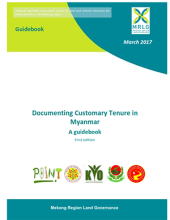Land Library Search
Through our robust search engine, you can search for any item of the over 73,000 highly curated resources in the Land Library.
If you would like to find an overview of what is possible, feel free to peruse the Search Guide.
/ library resources
Showing items 1 through 9 of 28.Includes overview;the problem: Development Finance Institutions (DFIs) finance a destructive model;current situation: DFIs write off loans;impacted communities face repression;human rights abuses;the role of European DFIs;recommendations.
Liberia has long maintained a dual land tenure system over statutory and customary lands characterized by unclear terms of ownership. Most rural Liberians depend on common resources for their survival. These are largely communally owned;used and managed.
For decades food insecurity has been a challenge in Cameroon’s Far North region;mainly due to extreme weather and weak land legislation. Now the problem is escalating.
This report on the state of industrial oil palm plantations in West and Central Africa shows how communities are turning the tide on a massive land grab in the region.
Cameroon’s current land law appears to have two conflicting objectives: to attract investors through large-scale land concessions; while protecting biodiversity;defending local people’s rights and promoting rural development.
Conflict began in August 2011 when 3 village communities in eastern-central Côte d’Ivoire learned that the Belgian corporation SIAT was about to move onto their land. Report details the increasing conflicts and legal battles that followed.
The NGO Forum on Cambodia, in cooperation with the Ministry of Agriculture, Forests and Fisheries, organized a national consultation workshop on 19-20 December 2016 on the sixth version of the draft Cambodian Agricultural Land Law.
This guidebook provides conceptual, legal and practical tools and resources to help civil society organizations guide communities through the process of documenting customary tenure at the local level.




